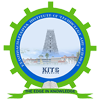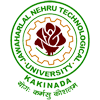R & D Policy
Research Policy
Preamble: The reputation of any educational institution depends on Research productivity, Teaching Learning, and Innovation. The success of an Institute in attaining its objectives is significantly dependent upon the alignment of the faculty with all the aspects of research initiatives, being undertaken at the Institute. Therefore, the present research policy aims to help KITS and faculty achieve excellence and contribute to organizations and society.
Establishment: The Research and Development (R&D) Cell established in the year of 2018 as per the directions issued and based on the minutes of the meeting of Governing Body. Composition of R&D Cell.
- Principal
- Coordinator (R&D)
- Heads* of all Academic Departments
- Members* (Senior Faculties) – nominated by the Principal.
- Nominee from the Industry
- Head / Members should hold Doctoral Degree (Ph.D.)
- Head / Members should have Research Publications in refereed journals (at least 10 Scopus & 2 Web of Science indexed) to their credit.
Responsibilities:
- The R&D Cell is responsible for the overall performance of the research activities of the Institute. The primary responsibility of the R&D cell is:
- To develop and enhance the Institute’s research capacities.
- To motivate all Faculties to pursue research in their respective areas of expertise.
- To protect and commercialize the Institute’s intellectual property.
- To take care of Consultancy activities related to R&D.
- To provide research and development opportunities for academic staff to maintain enthusiasm, awareness of current scholarship and relevance in teaching and other Institutional activities.
- To develop the infrastructure conducive to promoting the quality and quantity of research and development.
- To establish research and development priorities; and monitoring the quality and quantity of school research and development.
- To Disburse Institute Research Funds to established researchers, both individually and in groups; including research infrastructure funds; seeding grants to beginning researchers; research initiatives across the departments; and provision of consolidated information to the Governing Body and other appropriate Institutional bodies.
- To monitor the application of Research Funds and ensure that the funds are formally and adequately accounted.
- To promote emerging areas of research and development.
- To develop mechanisms conducive to the best possible ways of engaging and motivating research staff.
- To monitor and enhance the quality of research program, projects and the research infrastructure within Institute, including the training of research scholars. To be responsible for the progression of research scholars.
- To be responsible for the progression of research scholars.
- To foster the development of multi-disciplinary research endeavours across Faculties and departments.
- Monitor the research and development performance of individuals, groups, Centres, Schools and Faculties to encourage excellence and productivity by maintaining a database of research and development activities.
- Oversee the application of the Code of Research Ethics for the responsible practice of research.
- To formulate incentive schemes for promoting research activities with teachers and students’scholars. To enhance the quality of postgraduate education to be brought up to an internationally high level. An evaluation of the PG program to be carried out by the R&D committee. To promote building build strategic, durable partnerships and develop funding solutions with Industries and research Institutions for steering, funding, and cooperation.
Promotion of Research: KITS believes that researchers are free to choose the subject of their research, to seek support from any funding source for their research work, and to report their findings and conclusions. However, the research proposal should be available for scrutiny at the Institute level and shall obtain prior approval from authorities before applying to any agencies. Research techniques used by the researchers shall not violate established professional ethics, about the health, safety, privacy, and other personal rights of human beings or the infliction of injury or pain on animals.
KITS shall create a conducive environment for research. Due to limited resources, the Institute may not support fully all research likely to be undertaken, but it shall allocate the space, facilities, partial funding, and other resources for research based on the scholarly and educational merits of the proposed research. It shall also provide development opportunities to researchers for writing research proposals and reports, publications, patent filing, etc.
Publication of Papers and Journals: Publication of papers is critical for the effectiveness of the Institute. Faculty must publish continuously in quality Journals & Conferences (Indexed in Scopus & Web of Science). Therefore, the Institute plans to encourage the publication of papers by the faculty with a targeted aim. A faculty member shall be expected to publish a certain number of research papers in refereed journals & conference at national and international levels.
Research papers to be published in identified journals and to be presented at national and international conferences shall be scrutinized and guided by a committee of senior professors appointed by Coordinator R & D Each department shall be encouraged to publish a quality journal and organize research conference, from time to time to boost research activities in the Institute.
Incentives for Outstanding Research: The Institute would like to encourage quality research in different thrust areas. For this purpose, outstanding research contributions done by faculty and student shall be recognized. Therefore, the Institute shall prepare a scheme for providing an incentive to faculty and students. The incentives are identified as under.
- Incentive in terms of money
- Incentive in terms of awards/prizes
- Incentive in terms of more funding for the ongoing research
- Incentive in terms of a certificate or giving more weight for the career advancement scheme, etc.
Research Misconduct: The Institute believes that the occurrence of misconduct is a threat to the basic principles of research. The Institute defines research misconduct, as any fabrication, falsification or plagiarism in proposing, performing or reviewing research or in the reporting of research results. Research misconduct does not include an honest error or differences of opinion, authorship disputes that do not involve plagiarism, and violations of other University policies (e.g., sexual harassment policy). Misconduct in research damages the integrity of the profession and undermines the credibility of faculty/students/scholars. It is also antithetical to the values the Institute strives to maintain and promote.
The Institute shall take all allegations of misconduct seriously, and shall ensure that the procedures for the inquiry, investigation, and adjudication of any misconduct are well defined and just for all parties involved.
This policy shall review for every Three years
To Check Malpractices and Plagiarism in Research: The college is committed to produce and promote original research with highest quality, devoid of plagiarism of any sort while encouraging academic freedom and innovative thinking Submission of plagiarized works abuse the resources of all affected journals, including the valuable time of editors, reviewers, and staff, and is unprofessional and unacceptable. The college inculcates its faculty and students to abide by the highest standards of integrity in their conduct of academic research and/or support to academic research activities so as to conform to the following code:
- No form of plagiarism is allowed in the college. Plagiarism may be of various kinds such as claiming another’s paper as one’s own, copying or paraphrasing substantial parts of another’s work without due acknowledgement and claiming credit for another’s research and so on.
- The college lays strong emphasis on the standard of research, original thought and expression which are ensured through multiple layers of review. The faculty and students are expected to follow appropriate guidelines for publication in various journals, including those recognized by the UGC
- Faculty and students must avoid any action that may result in a conflict of interest. When objectivity and effectiveness cannot be maintained, the activity should be avoided or discontinued.
- Proper authorship representation must be maintained.
- Any incidence of fabrication or misrepresentation shall be a serious breach of professional conduct, with potentially severe ethical and legal consequences.
- Faculty/students attending/participating in any conference, permission must be sought from the HOD in writing, stating the purpose of the visit, the name and venue of the seminar/conference, and subject their work for a review by available anti- plagiarism software like Turnitin to a satisfactory limit. Currently it is 24% for B.Tech projects.



